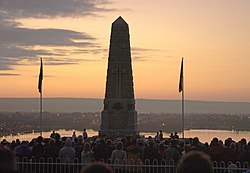While it's true that the the US military has greatly improved security all over Iraq, there are always those cities you look at, which cause you to hold your breath. Baghdad, with its Shia-dominated suburb, Sadr City is one. Mosul, in the northern portion of the country, is another one.
But there's one city that really has me biting my nails. It's the city of Kirkuk, not too far north of Tikrit. During Saddam Hussein's reign, many Sunni Arabs flooded the city, displacing the large number of Kurds who lived there. After the 2003 invasion, many Kurds returned to the city in an attempt to re-claim their homes. Well, that, and to capitalize on the massive amount of oil buried under Kirkuk.
The conflict over the city represents one of the many issues that the invasion of this fractured society caused. Namely, that there are winners and losers in this war. The Kurds definitely gained from the Iraq War. A flight over Kurdistan--yes, I flat-out refer to it as Kurdistan--is always a special treat. Much of Iraq is flat, barren desert, interrupted only in the Mesopotamia region, where you begin to see the palm groves and fields where men and women have been planting crops for thousands of years. Kurdistan is different. It features verdant hills and mountains.
Kurdish provinces where among the first to function autonomously, without American military assistance. Indeed, most American Soldiers remark that they frequently walk about Kurdistan without their body armour, unlike most other regions of Iraq. In fact, I've even heard of some interesting restaurants in Kurdistan to visit, and I hear that the hotel in Irbil (or Arbil, depending on the Romanization), the Kurdish capital, is a must-see. Kurdistan even has two international airports, one in Irbil, and the other in Sulamaniya. This is a far cry away from where the Kurds were under Saddam's regime, where they were frequently the targets of a number of massacres.
Contrast this with Iraq's Sunni population. Although they make up a minority of the population in Iraq, they constituted the dominant power under Saddam Hussein's regime. The Sunni areas received the bulk of the money during Saddam's regime, with massive presidential palaces throughout these areas, especially in Saddam's former home town of Tikrit.
However, the 2003 invasion tipped the balance of power. With the Shia now the dominant power in Iraq, and the Kurds enjoying a fair degree of autonomy in the north, many Sunni groups have lost out.
One of the key issues brought up in around 2006 or so was the issue of a
de juro partition of Iraq (as opposed to the
de facto partition which one might argue that Kurdistan enjoys). While a complete partition of Iraq sounds like a good idea initially, there is one key snag--the once-dominant Sunni would be relegated to areas of Iraq which have little oil revenue to speak of. Much of the oil comes from the southern portion of Iraq, which is Shia, with pockets located throughout the country--one of the largest being in Kirkuk.
One of those remaining pockets is in Kirkuk, a city that the Sunni also feel as if they have lost out on, particularly with the Kurds moving back in. It's a city where violence has decreased during the Surge, most certainly, but nowhere nearly as dramatically as in Baghdad.
In a case of life imitating art (in this case
Dante's Inferno, perhaps), there's a sulfur plant just on the outskirts of Kirkuk, spewing forth pungent smoke and brimstone, with nearby oil rigs topped with tongues of fire. There really are some things you can't make up.
The city itself, however, isn't the walled citadel of Dis that that image might initially conjure, but quite a bustling city. I had the opportunity to examine the city from the ground level and observed everyday Iraqis going about their daily business, with little white cars darting back and forth along one of the many roads throughout the city. Looking at the sights and hearing the sounds of an actual metropolitan area was a relief after beeing sequestered on forward operating bases. But Kirkuk is still very dangerous--bombings are still an all-too-regular occurance.
For now, Kirkuk is one of many six-hundred pound gorillas in the room. What to do with the oil? As of yet, there appears to be no definitive agreement for any sort of sharing plan. Time is quickly running out, particularly with the imminent drawdown giving sectarian groups time and breathing room, once again, to resume violence.
Time to hold your breath with Kirkuk...





